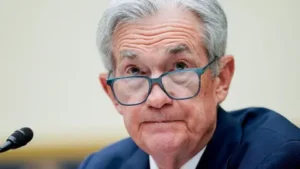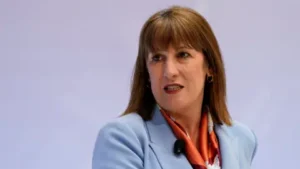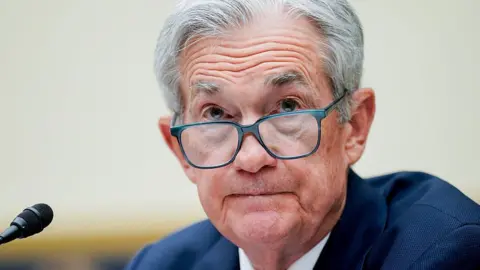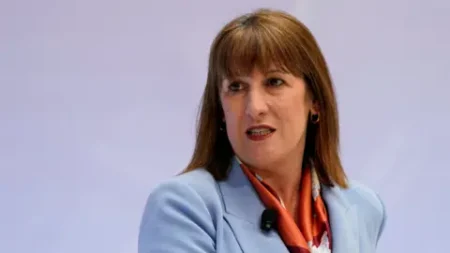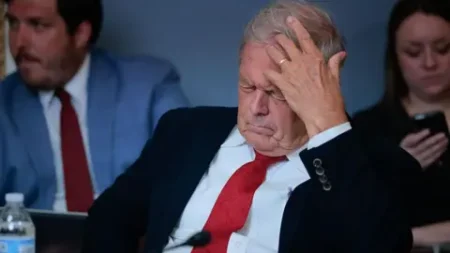In a recent development, US President Donald Trump has intensified his public criticism of Jerome Powell, the chair of the Federal Reserve, calling for his immediate resignation. Trump took to his Truth Social platform stating, “‘Too Late’ should resign immediately!!!” This statement is consistent with the ongoing tension between the president and the Federal Reserve chairman, marking a significant escalation in Trump’s rhetoric against Powell.
The urgency of Trump’s demand is compounded by the context of a news story that he linked in his post, which discussed the Federal Housing Finance Agency calling for an investigation into Powell’s testimony regarding renovations at the Federal Reserve’s Washington headquarters. The call for Powell’s departure signals Trump’s dissatisfaction with the current monetary policies, particularly in relation to interest rates, which he perceives as impediments to economic growth.
Interestingly, despite previously nominating Powell as the Fed chair during his first term, Trump has expressed frustration over Powell’s perceived reluctance to cut interest rates. Nonetheless, it remains ambiguous whether Trump possesses the constitutional authority to unilaterally remove Powell from his position. This uncertainty underscores a critical aspect of the relationship between the presidency and independent federal agencies.
In previous statements earlier in the year, Trump indicated he had “no intention of firing” Powell, highlighting a contradictory stance that raises questions about his current aggressive approach. The president’s economic strategy appears to hinge significantly on interest rate reductions, intending to stimulate growth in the wake of troubling economic indicators.
During a recent interaction at a central bankers’ meeting in Portugal, Powell explained that the failure to reduce rates had much to do with Trump’s trade policies, particularly tariffs imposed on international goods. When questioned about the potential for interest rate cuts, Powell responded affirmatively, suggesting that rates would have already been lowered had it not been for the tariff situation. Such statements indicate a complex interplay between economic policy and the administration’s broader fiscal strategies.
Furthermore, the Federal Reserve’s response to Trump’s accusations has been notably restrained; they declined to comment on the president’s remarks. Additionally, Powell reaffirmed earlier this year that he would not resign at Trump’s request, stating that such an action was not permitted by law. The established legal framework indicates that board members of independent federal agencies, like the Federal Reserve, can only be dismissed “for cause,” which is a standard set by a landmark Supreme Court ruling from 1935. This provision serves as a protective measure ensuring the independence of the Federal Reserve from political pressures.
In light of the increasing political friction, Bill Pulte, the director of the Federal Housing Finance Agency, recently urged Congress to investigate Powell, citing concerns about his alleged political bias and misleading testimony in the Senate. These developments coincide with Powell’s prior statements at a Senate hearing, where he characterized reports about the Federal Reserve’s operational costs as “misleading and inaccurate.”
In summary, the clash between President Trump and the Federal Reserve’s leadership exemplifies an ongoing struggle for influence over monetary policy and affirms the complexities of federal governance. It is a significant political discourse, reflecting the broader tensions between economic management and political authority. As Trump continues to navigate the challenges of his second term, these exchanges will likely shape the landscape of US monetary policy and the role of the Federal Reserve in economic recovery efforts.


